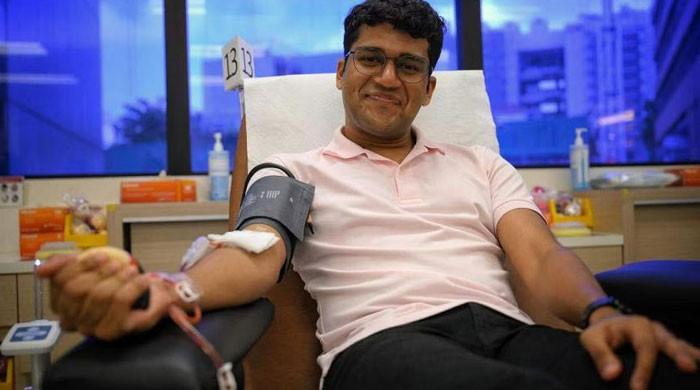Recent SRC data reveals that the number of young people aged 16 to 25 donating blood in Singapore is on the decline
Have you ever wondered how a small act like donating blood can help save lives?
As Singapore faces increasing demand for blood due to an aging population, the need for young blood donors is more important than ever.
Introducing Sheikh Abdullah Mohamed Fazil (23), an undergraduate student at the National University of Singapore, who has donated blood 13 times since 2019.
Fazil’s motivations are simple. The knowledge that for every blood donation he has, three lives could be saved. Reflecting on his journey, Fazil admits that some of his peers are hesitant, often due to fear of needles. To address this, he emphasizes the importance of inspiring and educating the younger generation about blood donation from an early age.
Recent data from the Singapore Red Cross Society (SRC) and the Health Sciences Authority (HSA) reveals worrying trends. The number of young blood donors between the ages of 16 and 25 is on the decline. In 2023, young people will account for just 15% of all donors, down from 17% in 2022 and significantly down from 33% in 2011.
This decline has been exacerbated during the pandemic, prompting SRC to suspend school outreach and mobile blood drives, which are critical to educating and recruiting youth donors. Although these activities have resumed, it will take time to regain momentum.
SRC and HSA are actively working to dispel misconceptions about blood donation. This initiative includes a youth blood donor program, the empowerment of young ambassadors, and digital tools such as the DonateBlood app. Despite these efforts, maintaining an adequate blood supply remains a challenge, with approximately 600 donors leaving the pool each year due to age or illness.
This urgency is underlined by the fact that Singapore requires approximately 125,000 units of blood per year, and this figure is expected to increase to more than 160,000 units by 2030. An aging population, which is becoming more susceptible to medical conditions, is contributing significantly to the increase in demand.
The SRC and HSA’s recent appeal for type O blood type donors ahead of the Lunar New Year highlights the critical need for diverse blood types. Her O blood type, which is a universal blood type, is very important in emergencies when the patient’s blood type is unknown. But stocks are at critical levels, putting elective surgeries at risk and jeopardizing life-saving blood transfusions.
Lecturer Kimun Yi, 44, who suffers from thalassemia, emphasizes the impact that blood deficiency has on individuals. Her regular blood transfusions are very important for a normal healthy life. Half of Singapore’s patients are type O, so the impact of the stock reduction is real and immediate.
